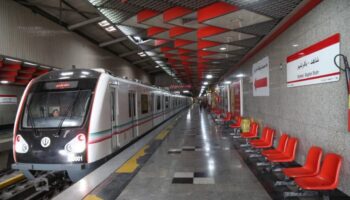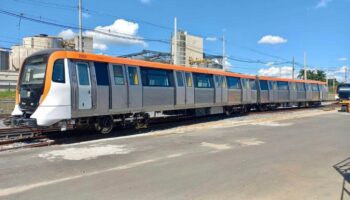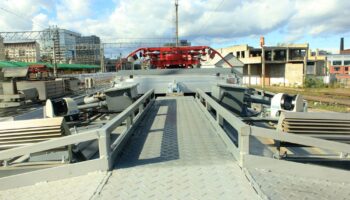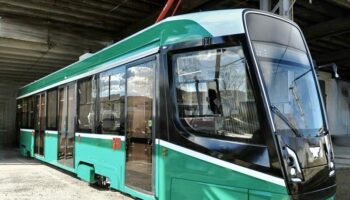UK: The leasing company Eversholt Rail and the engineering company Transport Design International, TDI, have signed a contract for three such pre-production vehicles for trial operation. According to IRJ, Eversholt Rail plans to invest £8.25 mln (about €10.3 mln) in their construction.
The Revolution Very Light Rail (RVLR), with a composite body and a maximum axle load of 8 t, has been under development since 2014 by a consortium of seven UK companies. In addition to Eversholt Rail and TDI, the consortium includes the Warwick Manufacturing Group at the University of Warwick, the UK Rail Safety and Standards Board, diesel engine manufacturer Cummins, and others.
The RVLR is expected to become a more cost-effective alternative to conventional rolling stock on lines with low passenger traffic. The new vehicle will reportedly be built using a modular vehicle assembly approach that supports multiple configurations, so it can be either battery-powered or hybrid with a diesel-electric powertrain. Different layouts are available for passenger service and even one for freight service with additional loading and unloading doors.
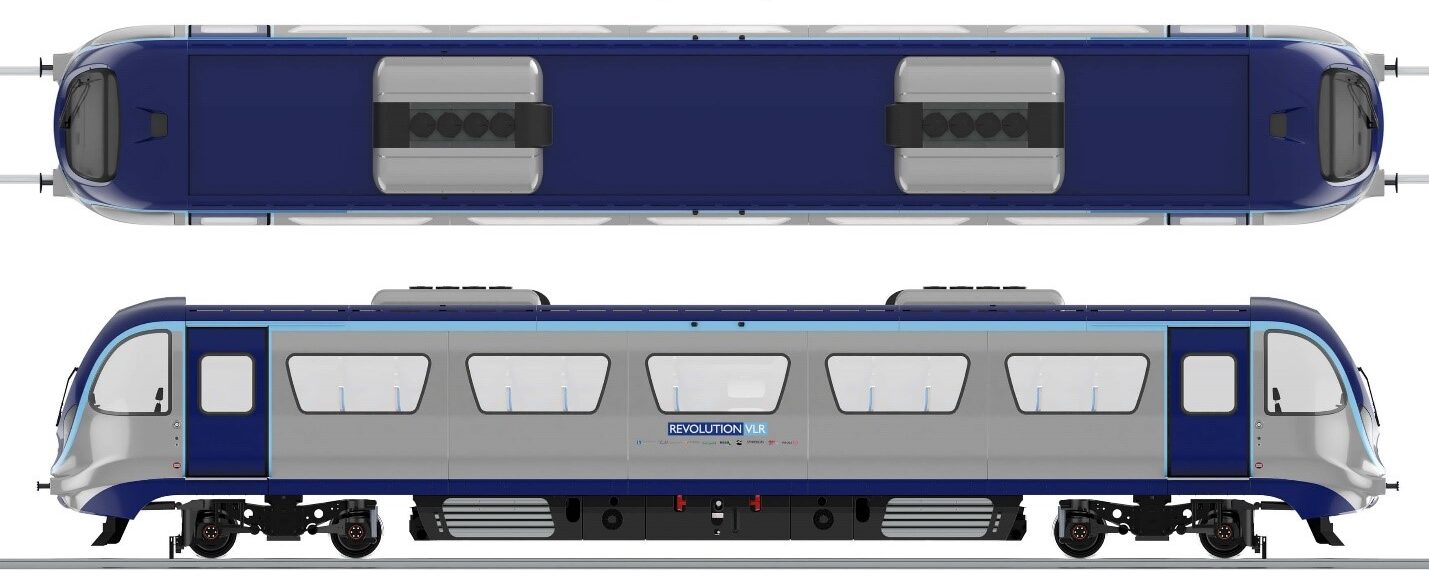 The rendering of the RVLR. Visualisation: TDI
The rendering of the RVLR. Visualisation: TDI
Eversholt Rail ordered only-battery vehicles. Their traction batteries can be recharged en route via a contact rail using a special rapid charging system. All three vehicles will be built at TDI’s site in the Midlands, with assembly starting in 2024 and the first rail vehicle entering service in 2026.
Eversholt Rail and TDI are now negotiating with the UK’s main rail operators to agree on possible routes for passenger trials of the new vehicles. The trials will familiarise passengers and operators with the design and capabilities of the RVLRs. With the actual data on their economics and passenger flows obtained at this phase, a long-term strategy for the introduction and operation of such vehicles will be developed.
The first hybrid prototype RVLR
After being built in 2021, the RVLR demonstrator was tested for two years on a disused access track in the West Midlands. The 18.5 m long vehicle weighs 24.8 t. To reduce its weight, the front ends and roof are made of aluminium and reinforced composite, and the side panels are made of carbon fibre. These body panels are mounted on a welded steel chassis and can be replaced individually.
The underframe consists of proven Wabtec LN25 bogies for freight wagons and Lucchini hollow-axle wheelsets with wheels of smaller diameter and prop shafts of carbon fibre.
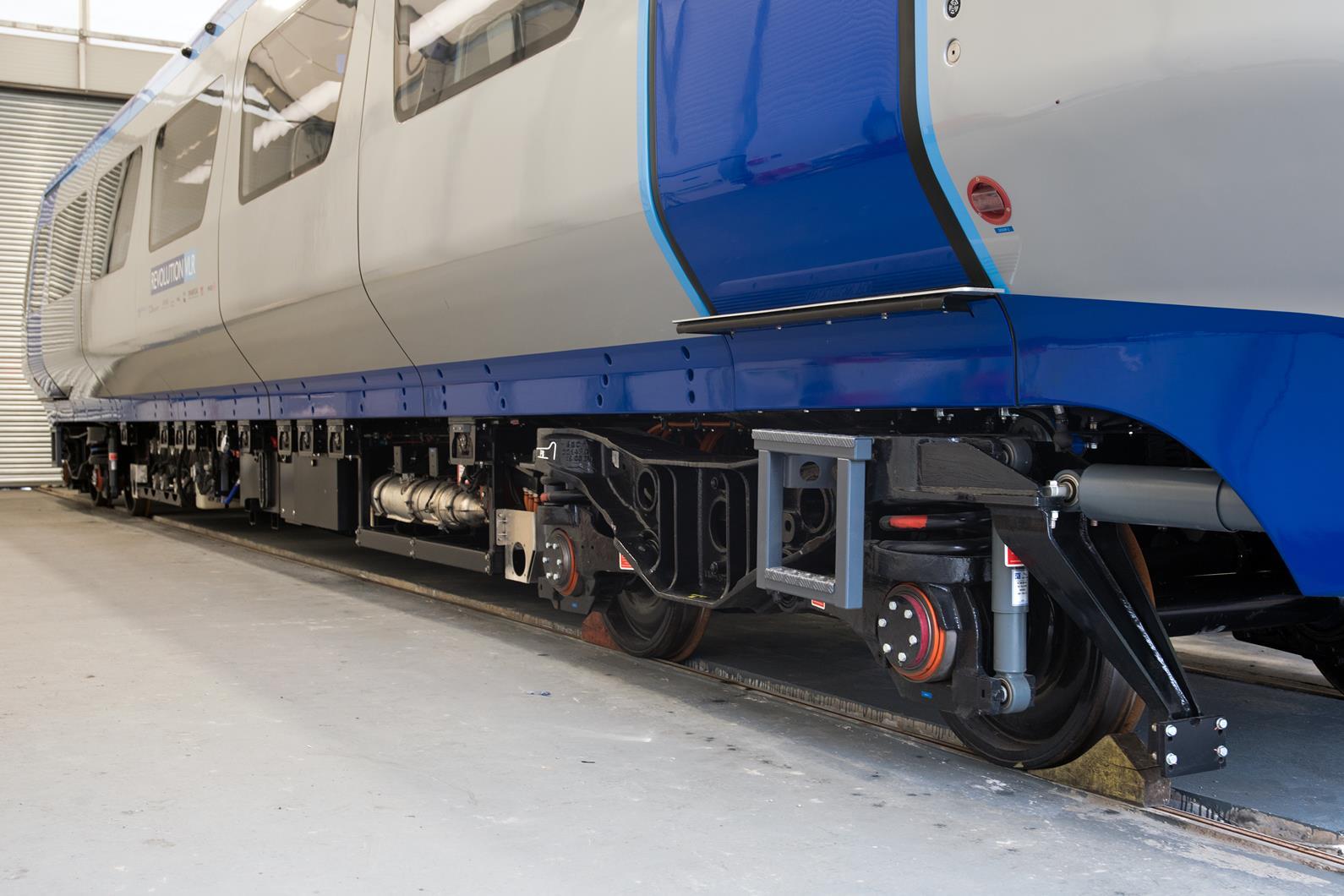 The RVLR bogies and traction equipment. Source: Tony Miles/Rail Business UK
The RVLR bogies and traction equipment. Source: Tony Miles/Rail Business UK
The prototype is a diesel-electric hybrid powered by two six-cylinder Cummins automotive diesel engines meeting Euro 6 regulations and two banks of lithium-titanate batteries 30 kWh each. The maximum speed is 104 km/h in diesel mode and 32 km/h in battery mode.
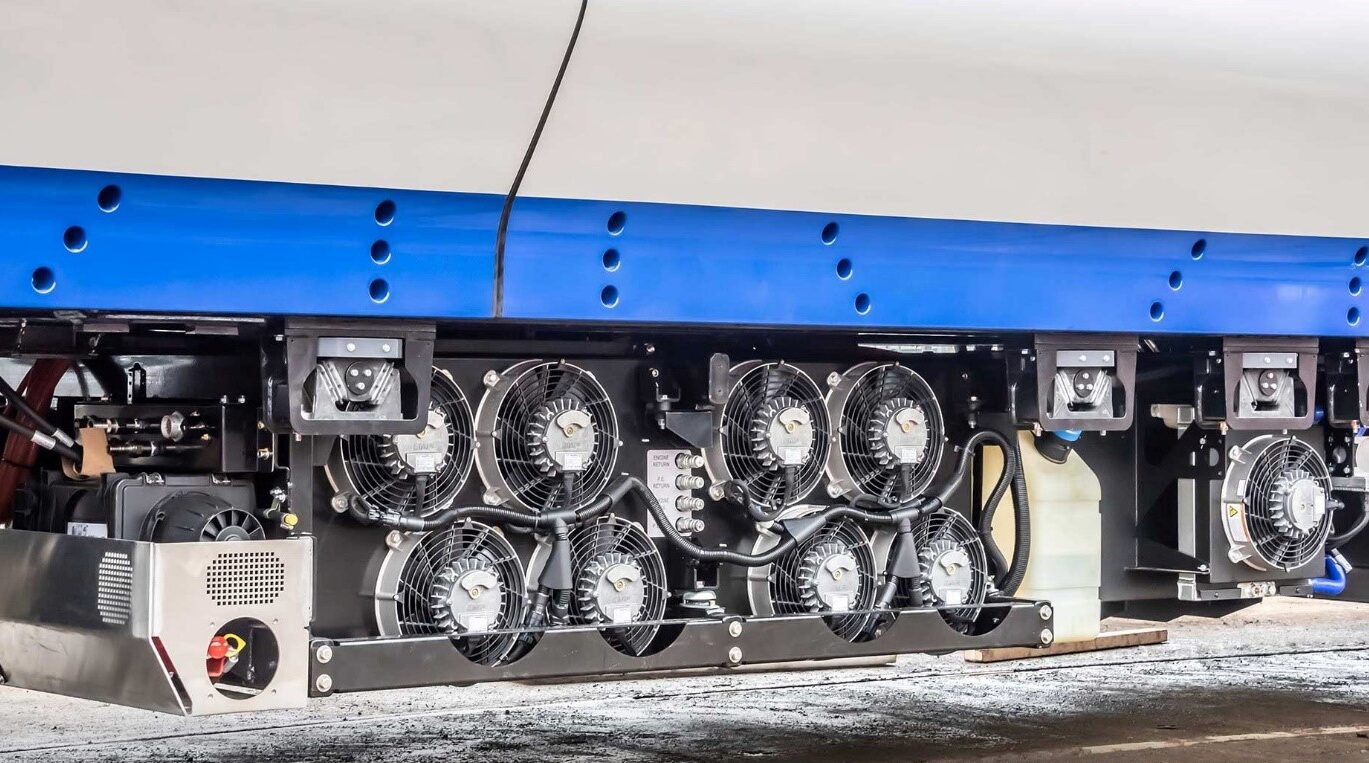 The lithium-titanium batteries and other traction equipment. Source: TDI
The lithium-titanium batteries and other traction equipment. Source: TDI
The interior has 56 seats, a space for a wheelchair passenger, two air conditioners, and USB sockets for charging personal mobile devices.
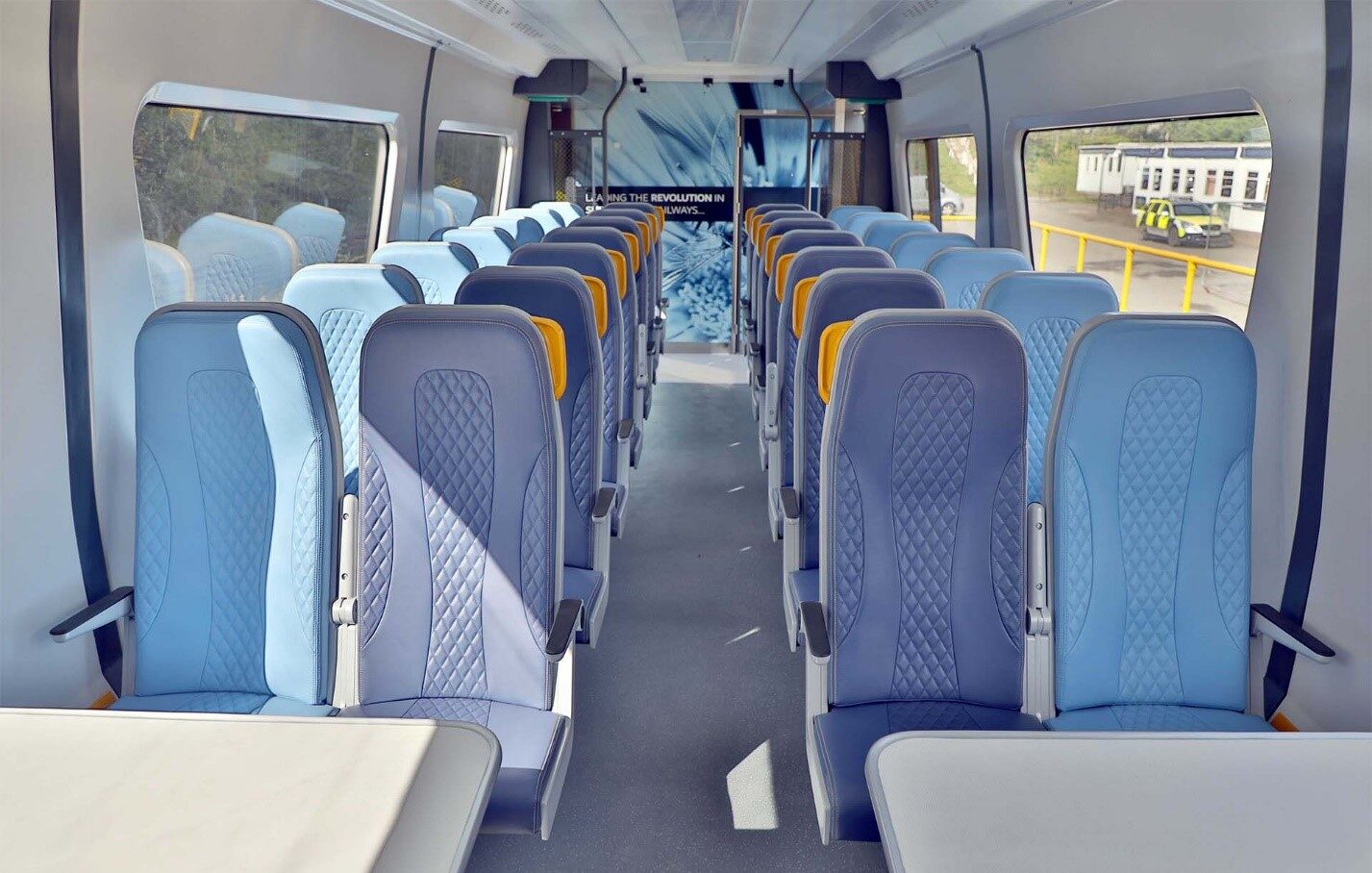 The interior of the RVLR. Source: TDI
The interior of the RVLR. Source: TDI
TDI has designed various battery-powered rail vehicles, including for private use. In 2021, the company participated in the development of another prototype of a very light rail vehicle, which can run on the lightest possible track and pass curves with a radius of 15 m. At the beginning of this year, the project received a government grant of €81.3 mln and continued testing in the autumn on a new test track in Dudley. The first LRV passenger line is scheduled to open in 2026 in the UK city of Coventry.










